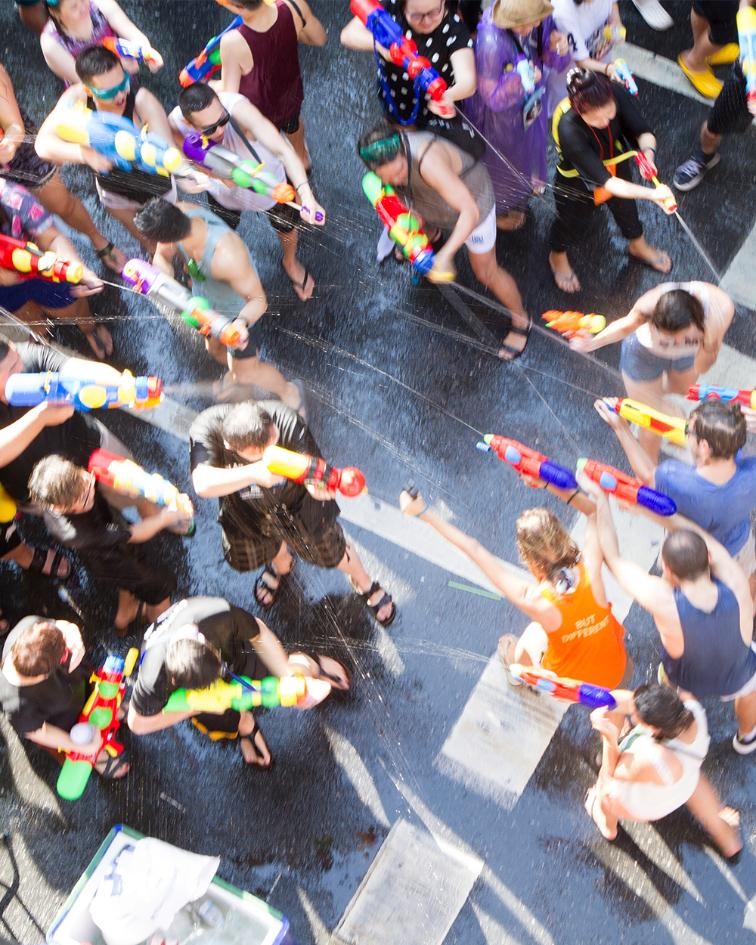You can't really write a piece on Thailand without mentioning the incredibly unique – and rather chaotic – festival known as Songkran, or the Water Splashing Festival
On 13 April every year, Thailand celebrates its New Year with myriad parades, dancing and folk entertainment – but it’s mostly about getting wet.
Thais show respect to their elders by gently trickling water over their hands. And celebrate with their friends more robustly, by engaging in supersoaker-based, en masse water fights.
At its heart it’s intended to enhance religious resolve and unite families. To any game tourists, it’s just a ton of fun and a welcome respite from the heat.
(*Please note that for the past three years the festival has been dry – no water pistols – due to the Covid-19 pandemic. Only traditional activities such as going to temples, praying, and pouring water on Buddhist statues has been allowed.)
It’s cameras-at-the-ready time when you visit one of Thailand’s famous floating markets with the tiny wooden boats packed to the brim with colourful fruits and produce. The most famous is Damnoen Saduak about an hour outside Bangkok: it’s packed with tourists, but certainly worth a visit – and you really should try the custard apples (a tropical fruit with a sweet taste that smells a bit like vanilla), yellow longan (sweet, juicy and succulent) and even the rather pungent durian, which can grow up to 30cm long.
There’s some really wonderful street markets in Thailand too that specialise in carvings, silks, pottery, silverware and furniture. Chatuchak is a secondhand market that takes place every Saturday and Sunday in Bangkok and there’s a wonderful Night Bazaar in Chiang Mai every evening.
The Grand Palace is probably the most recognisable place in Bangkok and one of the most palatial looking buildings in the world thanks to its glimmering gold veneer. Since 1782, it’s been the official home to the Kings of Siam and Thailand and it’s one of the busiest tourist attractions in the country. Navigating the crowds is worth it though and if you want to up the romance quota, go at dawn when the palace gently illuminates.
Another “golden” place in Thailand, but much less literally so, is the Golden Triangle in the north of the country at the confluence of the Mekong and Ruak rivers where the borders of Thailand, Laos and Myanmar meet. The name was coined by the CIA and in the 1920s it was the most prolific opium-growing area in the world. These days, after the government outlawed poppy cultivation in 1969, people mainly visit to absorb the Lanna culture and visit the many stunning cultural landmarks, such as the Wat Rong Khun.
If you do venture north, you should also consider Chiang Mai, an incredibly popular destination for backpackers and tourists with loads of magnificent temples like Wat Ket Karam on the River Peng and the Buddhist temple, Wat Ben Den, about 50km north. And if you’re all temple-d out, experience the city’s expressive capabilities at the Baan Kang Wat Artist Village just outside the Old Town.


